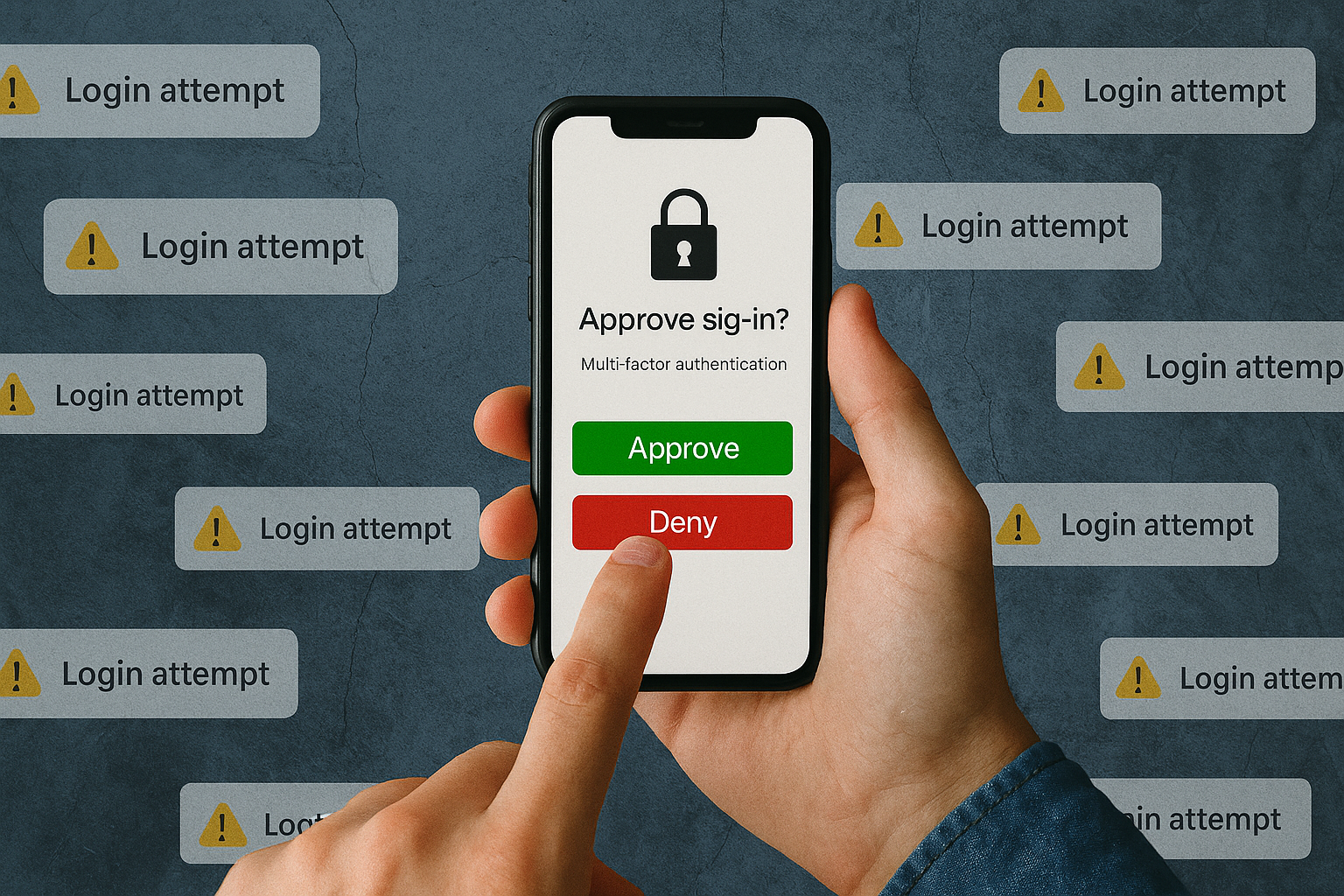
Why CFOs in Washington, DC Should Consider SOC as a Service
Why CFOs in Washington, DC Should Consider SOC as a Service
In today’s rapidly evolving digital landscape, cybersecurity is no longer a concern solely for IT departments. As a CFO, safeguarding your organization’s financial health is paramount, and understanding the strategic importance of cybersecurity measures such as Security Operations Center (SOC) as a Service is essential. Here’s why incorporating SOC as a Service should be a priority for CFOs in Washington, DC.
Financial Stability and Cost Efficiency
- Cost Savings: Establishing an in-house SOC can be prohibitively expensive. It involves significant investments in technology, infrastructure, and skilled personnel. SOC as a Service, on the other hand, offers a cost-effective alternative. By leveraging a third-party provider, your organization can access top-tier cybersecurity expertise and technology without the capital expenditure, leading to substantial cost savings.
- Predictable Expenses: With SOC as a Service, you benefit from predictable, subscription-based pricing. This financial predictability allows for better budgeting and financial planning, ensuring that there are no unexpected cybersecurity expenses that could disrupt your financial stability.
- Scalability: As your organization grows, so do your cybersecurity needs. SOC as a Service provides the flexibility to scale your security measures in line with your business growth. This scalability ensures that you only pay for the services you need, when you need them, optimizing your cybersecurity investment.
Risk Mitigation and Compliance
- Proactive Threat Management: SOC as a Service providers offer round-the-clock monitoring and threat detection, ensuring that potential security incidents are identified and mitigated before they can escalate into significant breaches. This proactive approach minimizes the risk of financial losses due to cyberattacks.
- Compliance Assurance: Maintaining compliance with industry regulations and standards is critical for financial health and reputation. SOC as a Service providers are well-versed in various compliance requirements, helping your organization adhere to necessary guidelines and avoid costly penalties associated with non-compliance.
- Incident Response: In the event of a security breach, a quick and efficient response is crucial. SOC as a Service includes incident response capabilities, ensuring that any security incidents are swiftly addressed, minimizing potential damage and financial impact.
Technical Excellence and Expertise
- Access to Advanced Technology: SOC as a Service providers utilize cutting-edge cybersecurity technologies and tools, offering your organization the latest in threat detection and mitigation capabilities. This access to advanced technology enhances your overall security posture.
- Expertise on Demand: Cybersecurity is a complex and ever-changing field. SOC as a Service providers employ teams of experienced cybersecurity professionals who stay updated with the latest threats and trends. This expertise is invaluable, especially for CFOs who may not have a deep technical background but need to make informed decisions about cybersecurity investments.
- Continuous Improvement: SOC as a Service providers continuously update their security measures to counter new and emerging threats. This continuous improvement ensures that your organization remains protected against the latest cyber risks, safeguarding your financial assets and corporate reputation.
Financial Stability and Cost Efficiency in Detail
Establishing an in-house Security Operations Center (SOC) requires a substantial initial investment. The costs include not only the physical infrastructure, such as servers and monitoring tools, but also the software licenses, ongoing maintenance, and upgrades. Moreover, hiring and retaining skilled cybersecurity professionals can be challenging and expensive. Salaries for experienced SOC analysts, threat hunters, and incident responders are high, and the demand for these professionals often exceeds supply, driving costs even higher.
By opting for SOC as a Service, your organization can bypass these capital expenditures. Instead, you can leverage the infrastructure and expertise of a third-party provider. This shift from capital expenditure to operational expenditure can free up financial resources for other strategic investments. The subscription-based pricing model of SOC as a Service also provides financial predictability. You can budget for cybersecurity expenses with greater accuracy, avoiding unexpected costs that could impact your financial stability.
Additionally, SOC as a Service offers scalability that is difficult to achieve with an in-house SOC. As your business grows or as cyber threats evolve, your security needs will change. Scaling an in-house SOC to meet these changing demands can be both complex and costly. In contrast, SOC as a Service providers are designed to scale their services efficiently. You can easily adjust the level of service to match your current needs, ensuring that you are only paying for the protection you require at any given time.
Proactive Threat Management and Compliance Assurance
Cyber threats are becoming increasingly sophisticated, and the potential financial impact of a successful cyberattack can be devastating. From direct financial losses due to fraud or theft to indirect costs such as reputational damage, legal fees, and regulatory fines, the repercussions of a breach are significant. SOC as a Service providers specialize in proactive threat management, offering round-the-clock monitoring and advanced threat detection capabilities.
These providers use a combination of human expertise and artificial intelligence to identify and mitigate potential threats before they can cause harm. They continuously analyze network traffic, user behavior, and other indicators to detect anomalies that may signal a cyberattack. This proactive approach is crucial for minimizing the risk of financial losses due to cyber incidents.
Compliance with industry regulations and standards is another critical aspect of cybersecurity. Regulatory bodies impose stringent requirements to ensure that organizations protect sensitive data and maintain the integrity of their systems. Non-compliance can result in hefty fines and legal penalties, not to mention the potential loss of trust from customers and partners. SOC as a Service providers have extensive experience with various compliance frameworks, such as GDPR, HIPAA, PCI DSS, and more. They can help your organization implement the necessary controls and processes to meet these requirements, ensuring that you remain compliant and avoid costly penalties.
Incident Response and Technical Excellence
In the unfortunate event of a security breach, a swift and effective response is essential to minimize damage and financial impact. SOC as a Service includes incident response capabilities, ensuring that any security incidents are promptly addressed. These providers have dedicated incident response teams that are trained to handle a wide range of cyber threats. They can quickly assess the situation, contain the breach, and initiate remediation efforts to restore normal operations.
Access to advanced technology is another significant benefit of SOC as a Service. Cybersecurity technologies are constantly evolving, and keeping up with the latest advancements can be challenging for in-house teams. SOC as a Service providers invest in cutting-edge tools and technologies to enhance their threat detection and mitigation capabilities. This includes advanced analytics, machine learning algorithms, threat intelligence feeds, and more. By leveraging these technologies, your organization can stay ahead of emerging threats and strengthen its overall security posture.
The expertise of SOC as a Service providers is invaluable, especially for CFOs who may not have a deep technical background. These providers employ teams of seasoned cybersecurity professionals who have extensive experience in managing complex security environments. They stay updated with the latest threats, trends, and best practices, ensuring that your organization benefits from the highest level of expertise. This expertise is critical for making informed decisions about cybersecurity investments and strategies.
Continuous Improvement and Strategic Value
One of the key advantages of SOC as a Service is the continuous improvement of security measures. Cyber threats are constantly evolving, and staying ahead of these threats requires ongoing effort and adaptation. SOC as a Service providers continuously update their security protocols and technologies to counter new and emerging risks. This ensures that your organization remains protected against the latest cyber threats, safeguarding your financial assets and corporate reputation.
For CFOs, the strategic value of SOC as a Service extends beyond cost savings and risk mitigation. By outsourcing your cybersecurity needs to a specialized provider, you can focus on your core business activities and strategic initiatives. This allows you to allocate more time and resources to driving growth and innovation, rather than managing complex security operations. SOC as a Service enables you to leverage the expertise and technology of a dedicated provider, ensuring that your organization remains secure while you concentrate on achieving your business objectives.
Real-World Examples and Case Studies
To illustrate the benefits of SOC as a Service, let’s consider some real-world examples and case studies. These examples highlight how organizations in various industries have successfully implemented SOC as a Service to enhance their cybersecurity posture and achieve significant financial benefits.
- Healthcare Industry: A large healthcare provider was struggling to maintain compliance with HIPAA regulations while managing a growing volume of cyber threats. By partnering with a SOC as a Service provider, the organization was able to achieve continuous monitoring and threat detection, ensuring compliance with HIPAA requirements. The provider’s incident response capabilities also helped the organization quickly address and mitigate security incidents, minimizing potential financial and reputational damage.
- Financial Services: A mid-sized financial services firm was facing increasing cyber threats and regulatory pressures. The firm decided to implement SOC as a Service to enhance its security measures and ensure compliance with industry standards such as PCI DSS. The provider’s advanced threat detection technologies and expert personnel enabled the firm to proactively manage risks and respond effectively to security incidents. As a result, the firm achieved significant cost savings and improved its overall security posture.
- Retail Sector: A national retail chain was experiencing frequent cyberattacks targeting its point-of-sale systems. The company implemented SOC as a Service to enhance its threat detection and response capabilities. The provider’s continuous monitoring and advanced analytics helped the company identify and mitigate potential threats before they could cause significant damage. The retail chain also benefited from the provider’s expertise in compliance, ensuring that it met industry regulations and avoided costly penalties.
These examples demonstrate the tangible benefits of SOC as a Service across different industries. By leveraging the expertise, technology, and continuous improvement of specialized providers, organizations can achieve enhanced cybersecurity, compliance, and financial stability.
Subscribe to our newsletter
Your monthly compass in the ever-evolving landscape of information technology.





